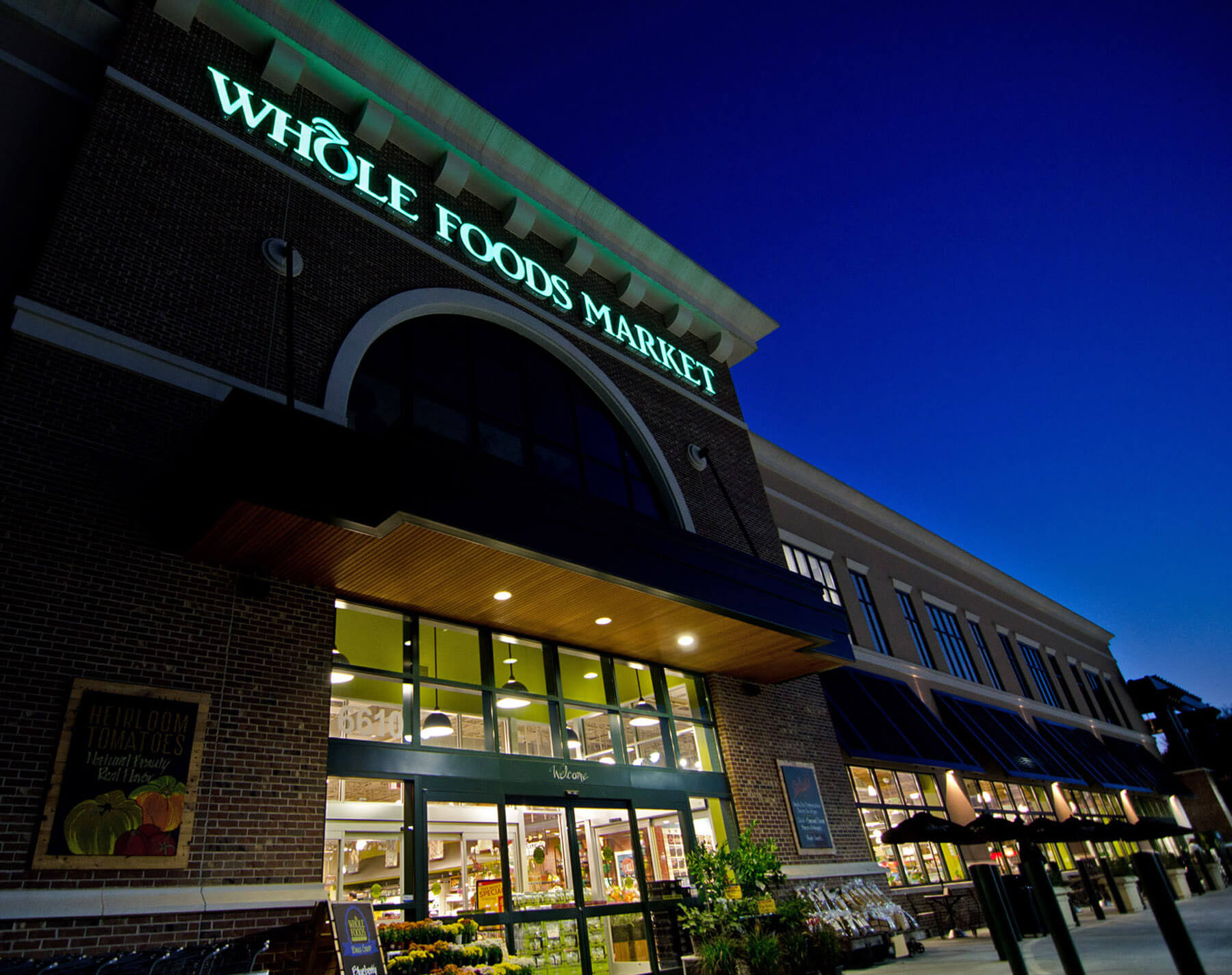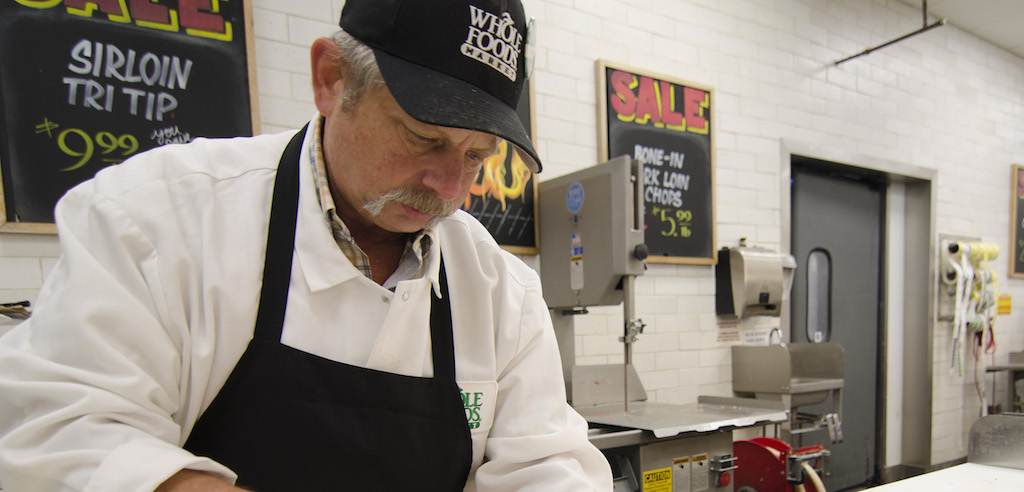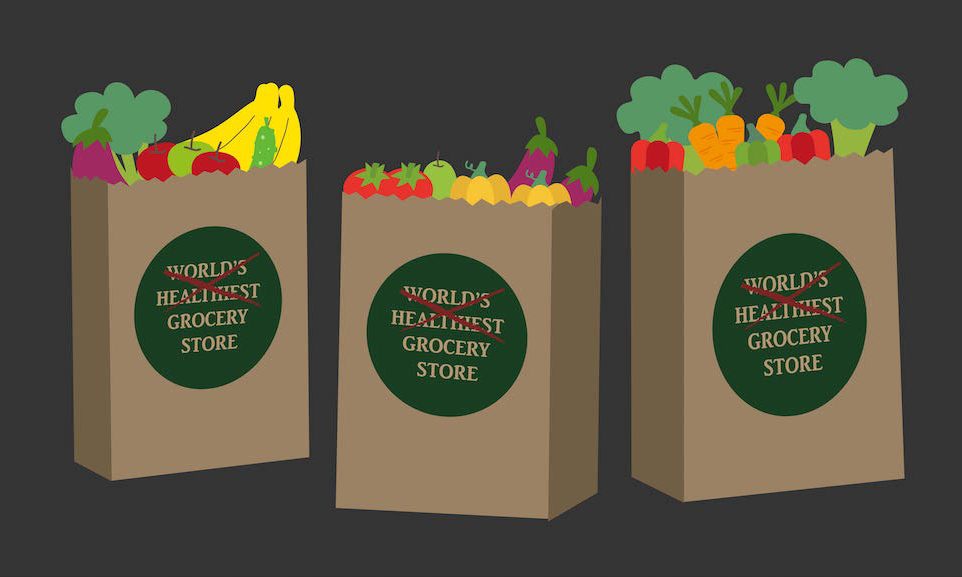
Whole Foods Market
“We cannot wait for politicians, institutions, or our own management to step in to protect us,” employees wrote, in a public petition announcing the mass action.
On Tuesday, Whole Foods Market employees across the country are expected to call in sick and stay home, a national “sick-out” intended to draw attention to draw attention to the plight of supermarket workers on the front lines of the Covid-19 pandemic. Their demands include guaranteed paid sick leave for all workers who stay home or self-quarantine, and a 100-percent raise for workers who come in and risk infection.
“Our fundamental needs as workers have become more urgent. Covid-19 poses a very real threat to the safety of our workforce and our customers,” the organizers wrote in a public petition. “We cannot wait for politicians, institutions, or our own management to step in to protect us.”
Besides paid sick leave and double pay, striking Whole Foods employees want health care for part-time and seasonal workers, paid coronavirus testing, social distancing policies between workers and customers, adequate sanitation equipment and procedures, and the immediate shutdown of any location where an employee tests positive for the virus—with paid sick leave until the location reopens.
“The hope is, by doing this at a time when stores are so bare bones, that we can make our power felt. The needs that we have are urgent.”
The action was originally planned for May Day, as part of an ongoing effort to unionize the Amazon-owned company. But when the pandemic hit, the mass action moved up, partially to take advantage of a temporary sick leave policy that allows for “unlimited call-outs,” or unlimited unpaid days off without being docked for attendance, according to one of the organizers.
“The hope is, by doing this at a time when stores are so bare bones, and the work is so essential, that we can make our power felt, and to start to create some pressure on Amazon to give us the protections we need,” said a Chicago-based Whole Foods employee, who asked to remain anonymous, fearing employer retribution. “People at Whole Foods are already getting sick. The needs that we have are urgent.”
The Austin, Texas-based chain has offered temporary raises of $2 an hour, and provided two weeks of paid sick leave to workers who test positive or self-quarantine, among other changes. But some stressed-out workers say that’s not enough. They say the chain’s failure to clean and close stores after employees in New York City, Chicago, Massachusetts, California and Florida tested positive for the virus shows that it’s not prioritizing safety, at a time when grocery sales across the country are booming.
The grocer’s initial response to the pandemic, which included a suggestion that employees donate paid time off to other workers, was condemned by many workers and widely derided on social media. Since then, attorneys general from 15 states sent a letter to the CEOs of Amazon and Whole Foods, demanding that the companies expand their sick leave policies. On Monday, Amazon workers in Staten Island also walked off the job, protesting the commerce giant’s decision to keep their warehouse open after a worker tested positive for Covid-19.
“We know that when workers are not provided with paid sick days, they go to work sick, which puts other workers and their customers in danger,” the signees wrote. “Given the contagiousness of the coronavirus and the danger it presents, particularly to elderly and vulnerable individuals, forcing workers to make this choice is simply a risk we cannot afford to take.”
Tuesday’s action isn’t technically a strike. A sickout, explains Rebecca Givan, a labor historian at Rutgers University, may occur when employees coordinate an action within the parameters of their employer’s work policies. Currently, Whole Foods is not requiring a doctor’s note to call out sick, according to the Chicago employee.
Whole Foods workers are not unionized and don’t have the legal right to strike. But some public sector workers who can’t strike have also sicked-out to get what they want, as in the case of the air traffic controllers who brought an end to last year’s federal shutdown.
“If employees do this in a coordinated matter, it can create all kinds of problems [for their employers], because there are few or no workers to perform the work,” Givan said.



